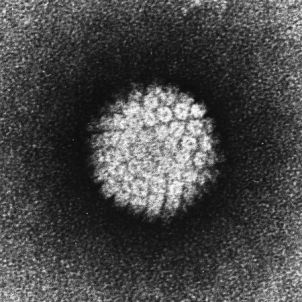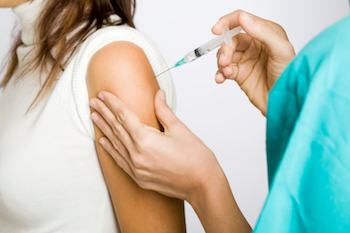The human papillomavirus is the most common sexually transmitted infection of them all. In many cases if people have HPV warts they don’t even know about it.
The truth is that there are about 40 different kinds of HPVs that could affect both men and women.
 While some of them could cause cancer, others could result in genital warts. In about 90% the infection clears up on its own, but it is better to prevent the infection.
While some of them could cause cancer, others could result in genital warts. In about 90% the infection clears up on its own, but it is better to prevent the infection.
Know how HPV caused warts are transmitted
In the majority of the cases the infections of this kind are transmitted through vaginal or oral sex, but they could be transmitted through any kind of genital contact.
As it has been mentioned there are a lot of people who don’t have any symptoms and they might have been infected with HPV for years without knowing about it.
If people don’t know that they have been infected with HPV warts they could pass it on to other people unwillingly.
It is possible although it is rare, for an HPV infected pregnant woman to pass the infection to the baby. If this is the case then the baby could get warts in the throat or larynx.
Vaccine
Another way to prevent HPV caused warts is to get vaccinated. This is available in case of women and it protects against 4 different kinds of HPV, including those that cause cancer. It is recommended for girls of 11-12 years to get vaccinated in case they were exposed to the virus before or for women and girls of 13-26 years who weren’t vaccinated or didn’t complete the vaccine series.
Preventing HPV warts
The most certain way to avoid the infection is not to have sexual activity. In case you are sexually active, you should make sure that you are properly using a condom each time. This can lower the chances of getting infected. When it comes to your partner it is best to have a mutually monogamous relationship, and it is best if your partner had little or no sex partners in the past.
In order to avoid HPV caused warts you should limit the number of sex partners you have to as little as possible. When choosing your partners, make sure that you are careful.
Getting infected
Even though you are careful and you have only one sex partner in your life, there are still chances that you will get affected by the virus sooner or later. According to statistical information about 50% of people get affected by the infection during their life.
No conventional test
You should know that when it comes to HPV warts, there is no conventional test that would show that you have the infection. Nonetheless there are some tests that test for the effects of the infection.
Genital warts
This is a condition that there is a test for. The warts are small clusters or bumps around the genital area. In case of women these bumps usually appear around the vagina, vulva or anus, cervix or the thighs. In case of men these become visible around the penis, thighs, scrotum and groin.
The HPV caused warts could appear within weeks or months after having intercourse with an infected person. It is also possible that you will have no warts at all. They do not turn into cancer, but in case they aren’t treated, they could multiply.
Cervical cancer
The bad news regarding HPV warts is that the cancer caused by the virus usually isn’t detected until it’s too late. This is why it is important to have periodical tests. In case you have a Pap test it could show the abnormal changes and the affected tissue could be removed before it turns to cervical cancer.
Less common cancers
As you may know some of the cancers of the female or male genital area have no symptoms until they reach an advanced stage. The same thing is true in case of the cancers of the anus or the vulva.
Things to know about HPV caused warts
Keep in mind that the virus that causes warts isn’t the same as the one that causes cancer.
Although vaginal and anal sex are the most common ways of spreading of HPV warts, it is also possible to contact the infection even though you have no sexual contact at all. It is enough for the infected skin to get in contact with your skin. As you can see there is a more lot to know about HPV warts.


